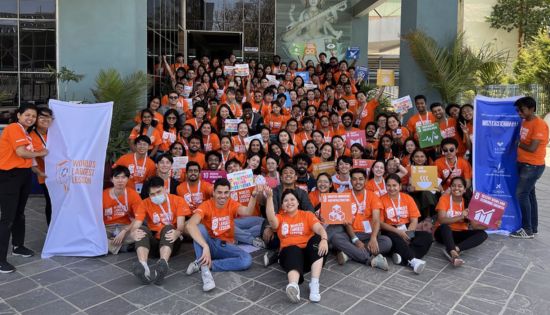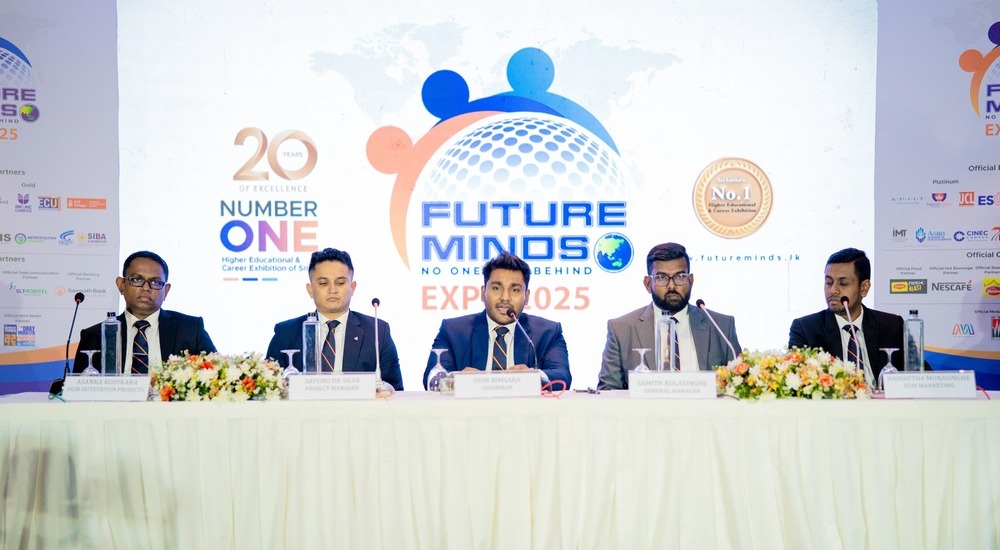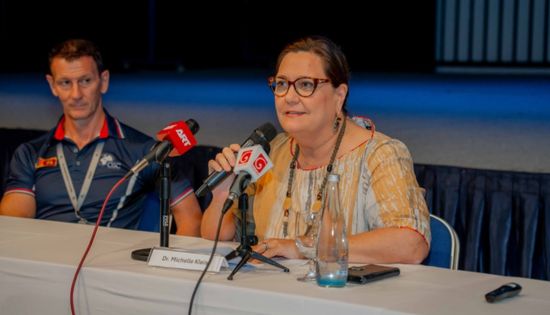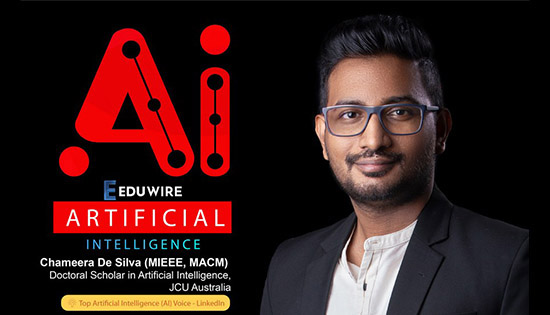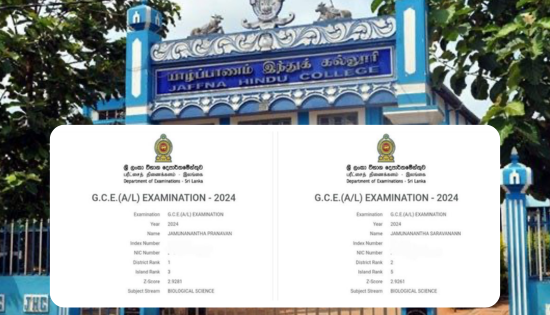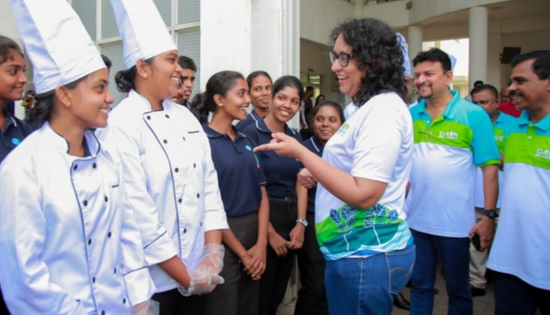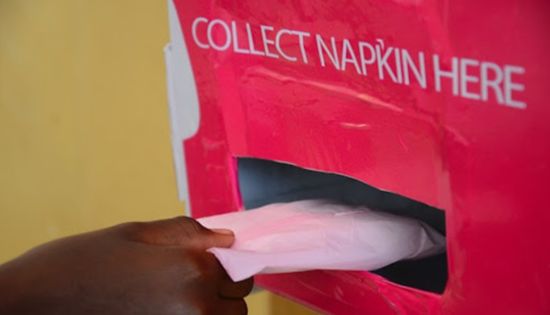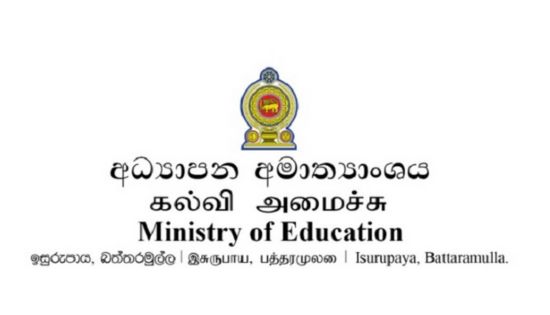Sri Lanka to Launch Smart University for Teacher Training: A Digital Revolution in Education
The Sri Lankan government is set to overhaul its teacher training programs to better incorporate digital technology into education. With a grant from the People’s Republic of China, the plan involves merging the country’s 19 teacher training colleges into a unified digital network, ultimately transforming them into a degree-awarding institution named the Sri Lanka University of Education (SLUE).
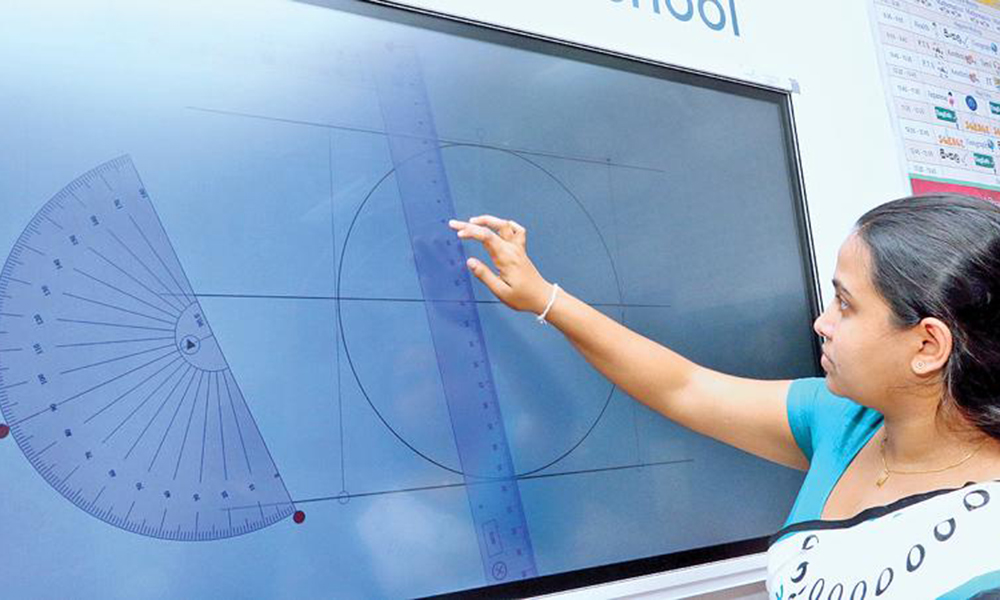
SLUE aims to become a leading institution dedicated to producing world-class educators capable of driving the future of education in Sri Lanka. The primary goal is to establish a “Smart University” that aligns with the nation’s broader objectives of digital transformation in the general education sector. This initiative seeks to equip future teachers with the necessary skills and knowledge to lead this transformation.
The digital enhancement of the education sector through the Smart University solution is expected to have significant implications for both the economy and society. By equipping teachers with digital skills, the program aims to foster an innovative educational environment that can adapt to the evolving demands of the digital age.
The implementation of this program will occur in multiple phases:
- Pilot Phase: Testing critical systems like the Learning Management System (LMS) and smart classrooms on a smaller scale.
- First Year: Establishing foundational infrastructure, including high-speed SD-WAN connectivity across all campuses and setting up smart classrooms with distance learning capabilities.
- Second Phase: Expanding smart classrooms and centralized distance learning platforms, along with achieving full Wi-Fi coverage across all campuses.
- Third and Fourth Phases: Further expansion to include biometric access systems and AI-driven education tools for personalized learning and analytics.
- Final Phases: Focusing on continuous innovation with global collaboration to ensure that SLUE remains a leader in digital education.
This initiative is part of a broader effort to digitize Sri Lanka’s education sector. In May 2023, the “Policy for Digital Transformation of Education” was introduced, aiming to equip students and educators with essential digital tools and skills. The policy outlines a comprehensive approach by prioritizing investments in digital infrastructure, teacher training, and ensuring device availability for all students.
Additionally, the Chinese government has shown support for Sri Lanka’s digital education initiatives. In July 2024, China agreed to provide a grant for 1,000 smart boards to be distributed across Sri Lankan schools, further aiding the country’s move towards digitized education.
The establishment of SLUE and the broader digital transformation initiatives reflect Sri Lanka’s commitment to modernizing its education system. By integrating advanced digital technologies and fostering global collaborations, the country aims to create an innovative educational environment that meets the demands of the 21st century.
Related News
Plans underway to integrate vocational training at school level – PM
Minister of Vocational Education, Prime Minister Harini Amarasuriya, says adequate attention is not drawn towards vocational education, but moving forward, necessary action…
Read MoreBBA (Hons) – Business Management – SLIIT
Employers prefer graduates with a broad skill set over those with specialized knowledge in today's fast-paced workplace. This demand is met by…
Read MoreCelebrating Innovation in Design : Uvinya Munasinghe Wins “Bench It” 2025
The City School of Architecture is shining with pride as one of its talented students, Uvinya Munasinghe, nailed the top spot in…
Read MoreSanitary pads for schoolgirls : announcement from Education Ministry
The 2025 programme to distribute sanitary pads to schoolgirls in Sri Lanka will be implemented exclusively through four commercial entities, the Education…
Read MoreApplication for Grade 1 Admission in Govt Schools 2026
Today, the Ministry of Education announced the release of instructions regarding the admission process for Grade One students in State schools for…
Read MoreCourses
-

IMC – Bachelor of Psychology
IMC Education Overview IMC Campus in partnership with Lincoln University College (LUC) Malaysia offers Bachelor of Psychology Degree right here in Sri… -

ANC – BA (Hons) International Business Management (Top-Up)
ANC Education Overview Designed in partnership with public and private business organizations, this program develops one’s ability to critically evaluate business models… -

IIT – BSc (Hons) Computer Science
IIT Campus Overview BSc (Hons) Computer Science provides a solid foundation and training regarding the fundamentals of the computer science field, along… -

APIIT – BSc (Hons) Cyber Security
APIIT Sri Lanka Overview Our BSc (Hons) Cyber Security award is designed to launch your future career in the protection of software… -

ICBS – BSC (Hons) Business Management with Marketing Management
ICBS Overview The BSc (Hons) Business Management with Marketing program, awarded by Queen Margaret University (QMU), is a highly regarded degree that… -

UTS – Diploma of Science
UTS College Sri Lanka Overview The Diploma of Science is designed to empower you to apply scientific thinking and analysis to important… -

CSA – Master of Architecture and Environmental Design
City School of Architecture Overview The Master of Architecture and Environmental Design Degree at CSA is awarded by the University of the… -

APIIT – BSc (Hons) International Business Management
APIIT Sri Lanka Overview Increasingly businesses are becoming more and more international. This requires business management professionals to have knowledge, skills and… -

IIT – BSc (Hons) Artificial Intelligence And Data Science
IIT Campus Overview The BSc (Hons) Artificial Intelligence and Data Science course is awarded by Robert Gordon University (RGU) in the UK… -

ICBS – International Degree Foundation in Business / IT
ICBS Overview The Scottish Qualification Authority (SQA) is a globally recognized organization dedicated to education and qualification development. SQA is responsible for… -

APIIT – BA (Hons) Finance and Business Enterprise
APIIT Sri Lanka Overview Finance and accounting are no longer just about taxation and the management of financial capital. This award will… -

APIIT – MBA General
APIIT Sri Lanka Overview The MBA is awarded by Staffordshire University, UK. This award is an advanced course of study in management… -

ANC – LLM in International Business & Commercial Law
ANC Education Overview This course is designed for graduates of law, business and finance in a legal or a corporate job role… -

AOD – BA (Hons) Fashion Design and Marketing
Academy of Design Overview The syllabus is from the UK’s Northumbria University, as one of their most revered flagship programmes and is… -

APIIT – MSc. Marketing Management
APIIT Sri Lanka Overview This MSc Marketing Management degree – awarded by Staffordshire University, UK is an advanced course of study in…
Newswire
-

New World Record from Wanindu Hasaranga
ON: July 5, 2025 -
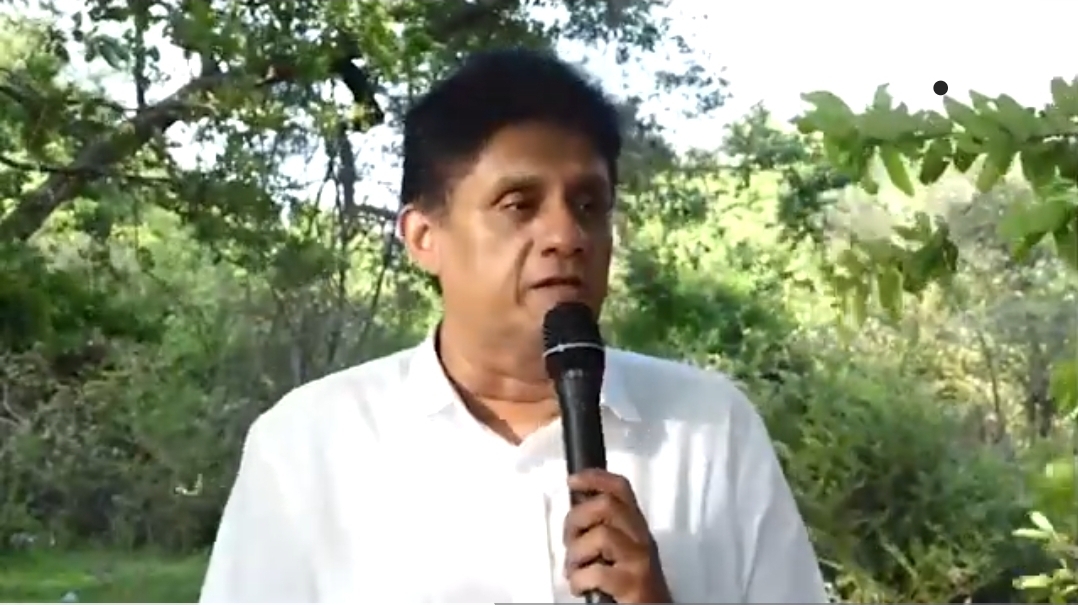
Opposition Leader Warns of Looming Debt Crisis Without 5% Growth
ON: July 5, 2025 -

Thriposha to Launch 100 New Retail Outlets Across Sri Lanka
ON: July 5, 2025 -

Police slams Irresponsible Media Coverage of Seatbelt Regulations
ON: July 5, 2025 -
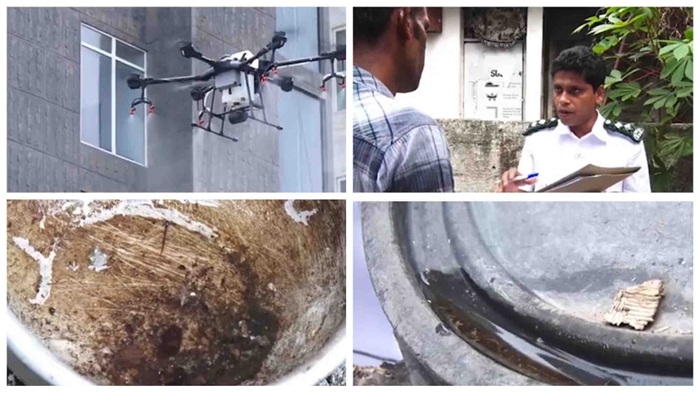
Over 5,000 Dengue Risk sites identified
ON: July 5, 2025

